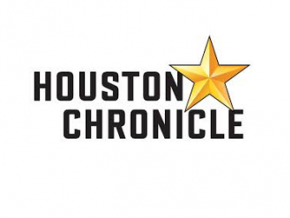"Unfair Burden"
INVESTIGATIVE CATEGORY
Houston Chronicle
05/16/2021
Texas deserves some credit for delivering on its boast of low taxation and light regulation — at least when it comes to the wealthy and well-connected.
A Houston Chronicle investigation, Unfair Burden, revealed how big companies and churches from every corner of Texas are gaming the state’s tax system to reap billions in tax breaks while shifting the burden to average homeowners already struggling to recover from the economic devastation of COVID-19.
The yearlong series, laid out in three multi-day installments, has already produced significant impact across Texas and in the state Legislature.
The largest tax giveaway, the $10 billion economic incentive program under Chapter 313 of the tax code, was not renewed for the first time in 20 years after Texas lawmakers pointed to the many abuses and skyrocketing costs exposed by the first series of stories in our investigation. The program had enjoyed wide support in the business community, and lawmakers had renewed it three times by wide margins since its initial passage in 2001.
The Chronicle discovered that scores of manufacturing projects are receiving tax incentives despite evidence that their projects would have proceeded without the tax breaks. Others keep getting breaks even when their job creation claims collapse.
Republican state Sen. Lois Kolkhorst, commending the newspaper for its investigation, called the Chapter 313 incentives a program “run amok.”
The impact didn’t end with that incentive program. The influential lawmaker in charge of local government issues at the state Capitol is vowing to reform the secretive and largely unregulated process of awarding lucrative city and county tax breaks, some lasting decades, that was the subject of the second installment of the series.
Even before the latest Unfair Burden installments were published, over a dozen appraisal districts told the Chronicle that they would remove tax breaks for clergy residences that were improperly granted to religious organizations. The Texas constitution says parsonages cannot be more than 1 acre. We found dozens that violated the law.
We also uncovered a vague and permissive exemption application process that largely relies on the honor system and revealed how many religious leaders are using obscure laws to live in tax-free mansions, often while preaching the virtues of poverty and humility.
Taken together, the stories clearly and unflinchingly describe how the burden of one of the most important sources of state revenue — and the largest funder of public schools, cops and local roads — falls disproportionately on those who can least afford it. For every tax exemption that lets a corporation slash its tax bill or enables a preacher to live in tax-free luxury, the cost gets picked up by everyone else.
The Chronicle devoted an extraordinary amount of resources — nearly a dozen journalists who fanned across the state for more than a year’s worth of reporting — to investigate a complex, but critical issue, one that shows the value of local journalism.
We began the Unfair Burden investigation by focusing on Texas’ “Chapter 313” program, since it was not only the state’s most expensive corporate incentive, but it also would expire if the Legislature didn’t renew it in 2021.
There’s a wealth of information online about tax breaks awarded through the program, so we slogged through hundreds of applications from companies as well as state documents evaluating those applications, and crunched the numbers in an enormous spreadsheet we created using state data and an exhaustive review of internet archives to gather information on the dozens of deals that no longer appear on state websites – an arduous but crucial step to identify the program's full scope.
We did a similarly exhaustive review of big companies’ public statements, whether in news releases or SEC filings, to identify cases in which the companies told state officials they needed the tax break to place a proposed project in Texas — but had already told their investors something else. In dozens of cases, we found companies announced they planned these projects in Texas before they applied for tax breaks — some had even started construction — and they got the incentives anyway.
We then turned our focus to the state’s Chapter 380 and 381 programs, statutes that give city and county leaders limitless ability to grant or loan public money. A statewide review of the agreements negotiated under these laws was impossible, as there is no database that tracks the agreements. So we filed repeated records requests with the state’s 15 largest cities and 15 largest counties to gather data on their 380 and 381 programs.
Many of the jurisdictions kept poor records, ignored or incorrectly processed the records requests, and otherwise needed excessive hounding from reporters to produce basic information about these tax breaks.
For the church parsonage series, there was no centralized database cataloging properties with parsonage exemptions. We went to more than 30 appraisal districts across Texas to build a first-of-its-kind database of nearly 3,000 exempt parsonages and the total value of each property.
Many of the appraisal districts could not cleanly separate parsonages in their record-keeping system. This meant we had to whittle down data on all exempt property to focus on properties that we suspected were parsonages based on their characteristics. We then requested more records from the appraisal districts on those individual properties in order to verify which properties were getting parsonage exemptions. The process took months and revealed a huge problem in regulating the parsonage exemption — the lack of record-keeping by appraisal districts.
LINK to content online
Submitted by Elizabeth Pudwill.

